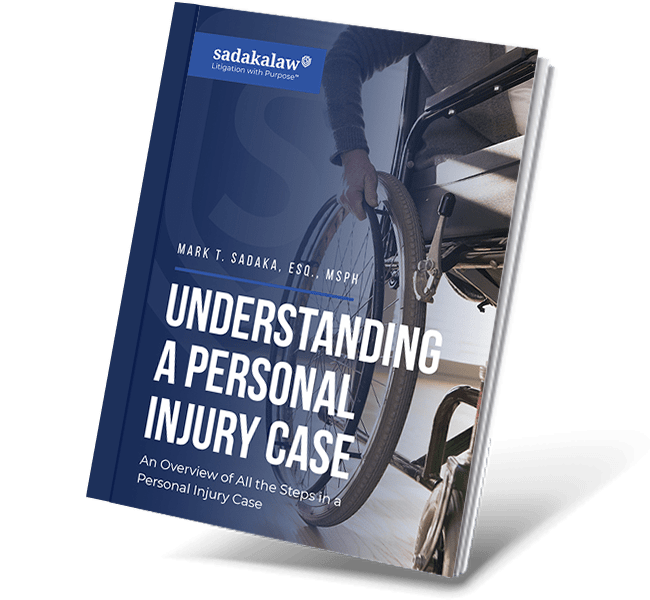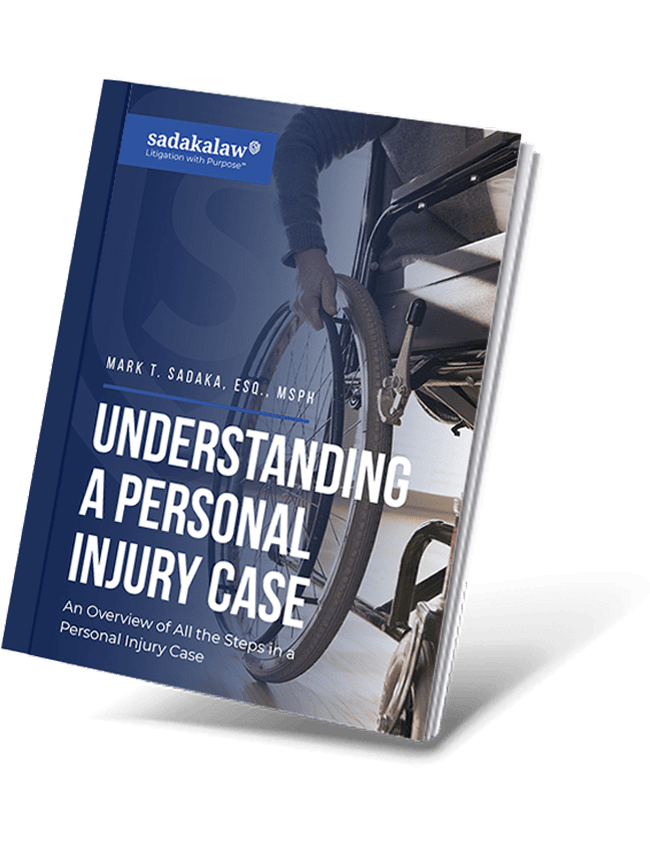Have you suffered a head injury or slipped and fallen at work? If so, you’re not alone. In 2022, more than 2.8 million people had to take time away from their jobs due to a work-related injury or illness. Many of those would have been in dire financial straits if not for workers’ compensation.
Workers’ comp serves as a lifeline to people who are temporarily or permanently unable to work. If you’d like benefits, you may have questions about workers’ compensation NJ rules. Below, learn about the rules and regulations for workers’ compensation in NJ.
Who Qualifies for Workers’ Compensation in New Jersey?
According to New Jersey workers’ compensation guidelines, any employee who is injured at work or develops a work-related illness qualifies for benefits. Workers’ comp covers all employees, regardless of who is at fault for their injuries. However, an employer must carry workers’ compensation insurance if employees wish to claim these benefits.
New Jersey requires all employers with at least one employee to have workers’ compensation insurance. This applies to any business with part-time, full-time, or seasonal employees. Businesses that don’t have workers’ comp insurance may face fines or even criminal charges.
NJ workers’ compensation laws also apply to out-of-state employers who do business in New Jersey. They must purchase a workers’ compensation insurance policy in New Jersey in addition to the policy in their home state.
Are All Employees Covered?
Workers’ comp covers all employees, but not everyone who works for a company may be considered an employee. Employers aren’t required to have workers’ comp insurance for volunteers, interns, and contractors.
Many employers are unsure whether to classify their workers as employees or independent contractors. To classify a worker as a contractor, that worker must:
- Perform work outside of the usual course of the employer’s business
- Work without the employer’s control or direction
- Have an independent trade or business for the specific type of work that they perform
It’s worth mentioning that some employers purposely classify employees as independent contractors to avoid paying for workers’ comp insurance. If you suspect your employer is doing this, reach out to an employment law attorney.
What Injuries and Illnesses Are Covered?

Workers’ compensation covers any injury or illness that happens at work or as a result of work. That includes accidents such as:
- Slip-and-fall accidents
- Ladder falls
- Head injuries
- Burns
- Electrocutions
But what does “as a result of work” mean? We know understanding workers’ compensation rules in New Jersey can be tough, so we’ve provided a few examples that would qualify for benefits:
- For your job, you spend much of the day typing at a fast pace. You develop bad pain in your wrists, so you visit the doctor, who tells you that you’ve probably developed carpal tunnel syndrome because of your job.
- You work at a grocery store stocking shelves, which involves repetitive bending and lifting. After several months, your back hurts so much that you can’t work anymore.
- You work in construction and are exposed to asbestos often. After a few years, you develop a terrible cough and chest pain. You find that you have mesothelioma as a result of asbestos exposure.
Are Third-Party Claims Covered in Workers’ Compensation?
In the workplace, you may be injured by something unrelated to your employer’s actions. For example, if you are injured by a forklift flip, that isn’t your employer’s fault, so what should you do? Although you may believe this means you won’t be able to file for workers’ compensation, that isn’t true. This is because you can file a worker’s compensation claim against the manufacturer of the item that caused your injury.
As such, the answer to the question “Are third-party claims covered in workers’ compensation” is yes, third-party claims are covered in workers’ compensation.
Filing a Workers’ Compensation Claim
Filing a workers’ comp claim is fairly simple, but you must follow workers’ compensation NJ rules to avoid having your claim denied. Here’s how to navigate workers’ compensation procedures in New Jersey.
Promptly Notify Employer
After having an accident at work (or developing a condition/illness related to your work), you must notify your employer as soon as possible. If you fail to tell your employer about the injury within 90 days, you may forfeit your right to workers’ compensation.
Once the employer has your report, they must file a First Report of Injury form with the state, which then evaluates the claim and decides whether it’s compensable under New Jersey laws.
Seek Medical Attention
If you need emergency treatment, go to the hospital right away. Don’t wait for your employer to file documentation with the state or give you permission to seek medical care.
If you’re hurt but don’t need emergency treatment, your employer will tell you which doctor to see. You must go to the doctor they’ve selected to have your bills covered by workers’ compensation.
Temporary and Permanent Disability Benefits
Workers’ comp provides temporary disability benefits to employees who must take off seven days of work or more due to injury. If you have reached maximum medical improvement (MMI) and still cannot return to work, you may qualify for permanent disability benefits.
Dispute Resolution and Legal Assistance
It’s not uncommon for employers to try to prevent employees from claiming workers’ comp benefits. Sometimes, an employer might say an employee hurt themselves outside of work because they don’t want their insurance premiums to increase. Some employers may disagree with the medical treatment provided to employees.
If your employer is making it hard to claim benefits, you can file an application for an informal hearing with the Workers’ Compensation Division. You’ll then have a hearing before a judge to help resolve the dispute.
Most workers choose to have an attorney represent them for the hearing. It’s possible to attend the hearing on your own, but you’re likely to have a better outcome with an attorney by your side.
File a Formal Claim Petition
If an informal hearing isn’t enough to resolve your dispute, you may file a Formal Claim Petition. You’ll typically have your first hearing within six months of filing.
Your lawyer will attempt to resolve the dispute during the pre-trial stage. If that fails, your case will proceed to trial. The judge will hear your testimony, as well as the testimony of your doctors and lay witnesses. The judge then renders a decision based on the evidence in your case.
Types of Benefits

Injured workers often wonder what types of workers’ compensation benefits they qualify for. There are three types: temporary disability, permanent disability, and medical benefits.
Temporary Disability
Workers qualify for temporary disability if they must take more than seven days off work to recover from an injury. You can continue to receive benefits until:
- You’re able to return to work
- You’ve reached maximum medical improvement
- You’ve been on temporary disability for 450 weeks
Permanent Disability
If, after 450 weeks, you still cannot return to work, you can claim permanent disability. You can stay on permanent disability for life if necessary.
There are two kinds of permanent disabilities: partial and total. If your doctor says you’re permanently and totally disabled, you can continue receiving the same benefits as you did on temporary disability.
Partial disability is more complicated. That’s because some injuries are “scheduled” while others are “non-scheduled.” Scheduled injuries include those involving feet, hands, fingers, toes, ears, eyes, or teeth. Non-scheduled injuries involve other body parts, such as the heart and lungs. Scheduled injuries have pre-determined benefit rates, while non-scheduled ones do not.
Medical Benefits
One of the biggest perks of workers’ compensation is its medical benefits. Workers’ comp covers all medical care related to your workplace injury or illness. That includes:
- Emergency care
- Surgery
- Medications
- Medical equipment, such as walkers, crutches, and wheelchairs
- Physical therapy
- Doctor’s appointments
- Home health care
- Home modifications, such as widened doorways and wheelchair ramps
Death Benefits
If a loved one loses their life at work, you may be entitled to death benefits through workers’ compensation. Dependents of the deceased, including their spouse and children, are eligible for 70% of the deceased’s average weekly wage.
Children who are dependents qualify for benefits until they turn 18, or 23 if they are attending college. If the child is mentally or physically disabled, they can claim benefits for longer.
Employers or their insurance companies are also responsible for paying $3,500 for funeral and burial costs. These costs may be paid to an individual or the deceased’s estate.
Can You Be Fired for Filing a Claim?

Per NJ workers’ comp statutes, your employer cannot legally fire you just for making a workers’ compensation claim. However, many employers are aware of the law and will find other reasons to fire employees as a way to retaliate against them for making a claim.
For instance, your employer might fire you for poor performance even though your previous reviews have been nothing but stellar. This could point to wrongful termination. It’s difficult to prove, but a good employment attorney can help.
Note that it is completely legal for your employer to let you go if they were planning on firing you before you claimed workers’ comp benefits. For example, say that your boss wrote you up multiple times for coming in late. They were ready to fire you when you suddenly slipped and hit your head at work. They’re within their rights to fire you even if you make a workers’ comp claim.
Many employees wonder whether it’s legal for their employer to fire them if they’re so disabled that they can no longer do their jobs. Unfortunately, it is. You cannot expect your employer to hold your position for you when they have no idea whether you’ll ever return. Even if you do lose your job, your employer might try to find a similar role you can perform when you return to work.
How Are Workers’ Compensation Benefits Calculated in New Jersey?
To calculate your benefit amount, the Workers’ Compensation Division will:
- Determine your average weekly wage. This is done by dividing your base year earnings by the number of base weeks. For 2024, a “base week” is any week you earn at least $283.
- Determine your weekly benefit rate. Workers’ comp pays 85% of your average weekly wage, up to the maximum weekly benefit rate for the calendar year ($1,055 per week for 2024).
Statute of Limitations for Filing Workers’ Compensation
In New Jersey, you have two years from the date of your accident to make a workers’ compensation claim. The clock starts ticking on the day you’re injured.
This two-year statute of limitations also applies to injuries and illnesses that occur as a result of your job. You must file a claim within two years of a diagnosis of a work-related illness or injury.
For example, let’s say your job involves lifting heavy boxes, and you’ve had back pain for months as a result. You finally decide to see a doctor, who tells you that you’ve suffered an injury because of your work. You would have two years from the date of that diagnosis to make your claim.
If you don’t file a claim in time, you lose your right to benefits.
How Long Does It Take To Receive Workers’ Compensation?

For medical benefits, there is no waiting period. You can go to the doctor your employer or their insurance company has selected right away.
For temporary disability benefits, there is a seven-day waiting period. The reason for this waiting period is that you may recover enough to return to work before seven days are up. Benefits will kick in if you’re still too injured to go back to work after one full week.
Permanent disability is more complicated. First, you’ll have to reach maximum medical improvement. After your doctor makes that determination, your employer’s insurance carrier must send a Subsequent Report of Injury form to the New Jersey Department of Labor within 26 weeks.
You might have to undergo additional exams to determine whether you truly need permanent disability benefits. This can take several weeks or longer.
What Should You Do If Your Claim Is Denied?
If your claim is denied, you can file a Formal Claim Petition or Application for an Informal Hearing. An informal hearing is typically your first recourse. If that fails, you can proceed to a formal trial.
You should also contact an attorney from Sadaka Law to represent you. Our attorneys will guide you through the claims process and represent you if your case proceeds to trial.
To learn more about workers’ compensation NJ rules, call Sadaka Law at (800) 810- 3457.


